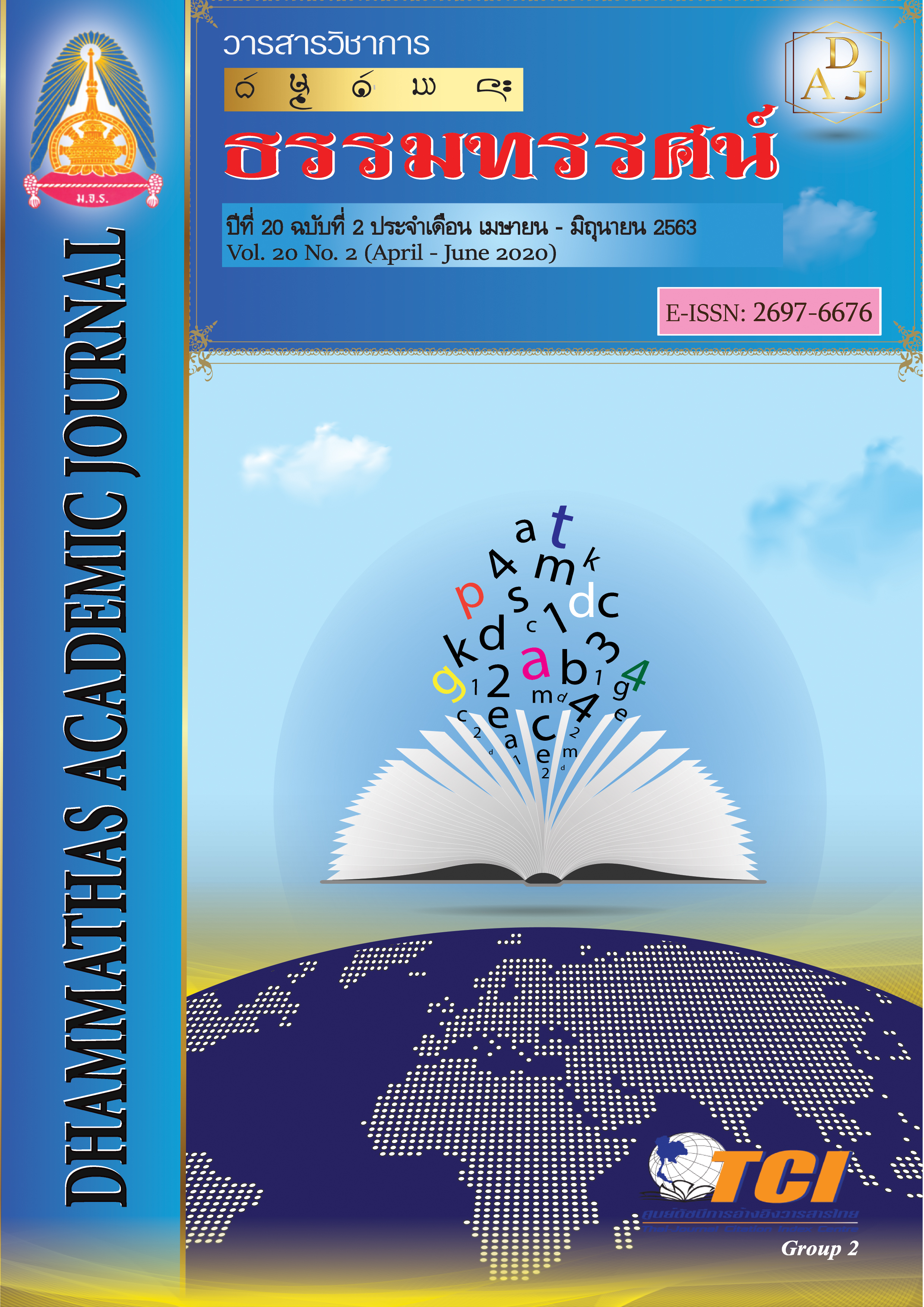A Development Strategies for the Sufficiency Economy Moving forward of Phulek Temple Chaiyaphruek Subdistrict Mueang District Loei Province
Main Article Content
Abstract
The objectives of the research were: 1) to analyze the successful strategies of Phulek Temple on moving forward the sufficiency economy, 2) to develop the temple’s strategies appropriate for the community, 3) to evaluate of the temple’s strategy for the sufficiency economy moving forward, which was regarded suitable for the community. The research was engaged in the qualitative methodology. The target population of the research was a total of 44 selective respondents, divided into 9 monks as temple abbots, and 35 lay persons, who were temple bursars, representatives of temple committee, community leaders, qualified persons, and representatives of villagers. The instruments used for data collection were comprised of questionnaires, observation forms and the workshop, and the collected data were analyzed through the content analysis.
The result found that:
1. The analysis of the temple’s successful strategies on moving forward the sufficiency economy was found dependent upon seven aspects of analytical strategies: planning, organizing, personnel management, administration, coordination, supervision, and performance report as well as an approach of the social and community development in the area.
2. The strategy development plan of the temples on moving forward the sufficiency economy for the community was found dependent upon the components has 17 aspects, which are application of the sufficiency economy into a sufficient pit, generation of community leadership through the monk’s role, temple management, sufficient observation of eight precepts, five-aspect life assurance, creation of costs of thinking through education and practice, generation of human development guidelines, temple management based on the Buddhist principle of Bhavana (four principles of development), education as the basis of development, welfare development in the temple, mental development promotion on the Buddhist holy days, utilization of leaders’ specific skills, human development through various activities, regular morning and evening chants, outside committee members, the leader’s vision in public service activities, and public relations of the temple’s activities.
3. As a result evaluating the temple’s appropriate strategies on moving forward the sufficiency economy for the community’s context of the community has 4 aspects, volunteer spirit for learning development, sufficient pit for community sufficiency, development of a community prototype concept, and household accountancy.
Article Details
References
Analysis of globalization and its impact on Thailand. (2008). http://www.oknation.net/blog/current/2008/09/15/entry-8. (Accessed 30 March 2015).
ชัยพัชร์ เลิศรักษ์ทวีกุล. (2557). ผู้นำเชิงกลยุทธ์. สืบค้นเมื่อ 1 ธันวาคม 2556. จาก http://deonetraining.com
Chaiprak Lertraktaveekul. (2014). Strategic leadership. http://deonetraining.com. (Accessed 1 December 2013).
รงค์ ประพันธ์พงศ์. (2550). เศรษฐกิจพอเพียงและทฤษฎีใหม่. กรุงเทพฯ: สถาพรบุ๊คส์.
Rong Prapanpong. (2007). Sufficiency Economy and New Theory. Bangkok: Sathaporn Books.
สัญญา สัญญาวิวัฒน์. (2546). ทฤษฎีและกลยุทธ์การพัฒนาสังคม. กรุงเทพฯ: จุฬาลงกรณ์มหาวิทยาลัย.
Sanya Sanyaviwat. (2003). Theories and strategies for social development. Bangkok: Chulalongkorn University.
สำนักงานคณะกรรมการพัฒนาการเศรษฐกิจและสังคมแห่งชาติ. (2554). พระมหากษัตริย์นักพัฒนา เพื่อประโยชน์สุขสู่ปวงประชา. กรุงเทพฯ: ศูนย์การพิมพ์เพชรรุ่ง
Office of the National Economic and Social Development Board. (2011). The King of Development for the benefit of the people. Bangkok: Petchrung Press.
Gulick Luther and Lyndall Urwick. (1973). The Science of Administration. New York: Columbia University.
Schermerhorn. J. R. (2002). Management. (7th Ed.). New York: John Wiley & Sons, Inc.

